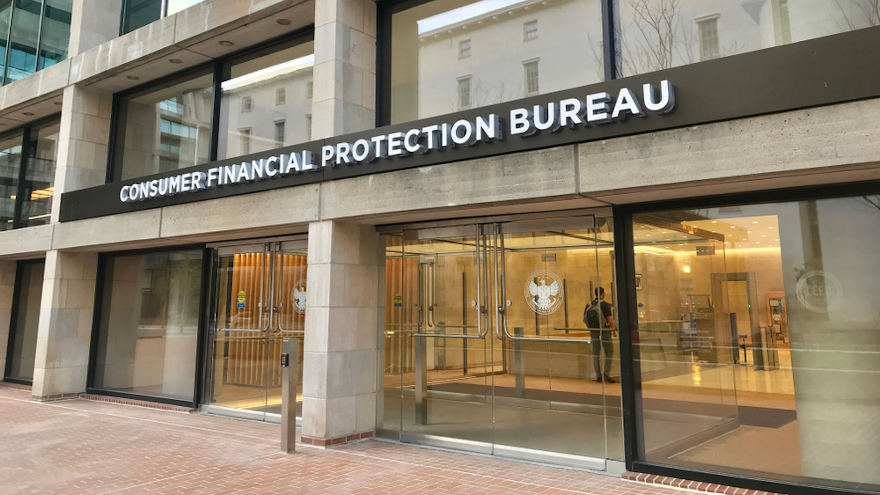Context for another CFPB consent order involving loss damage waivers

By subscribing, you agree to receive communications from Auto Remarketing and our partners in accordance with our Privacy Policy. We may share your information with select partners and sponsors who may contact you about their products and services. You may unsubscribe at any time.
WASHINGTON, D.C. –
Venable partner Allen Denson offered some context that might help finance companies understand why the Consumer Financial Protection Bureau (CFPB) reached its second consent order in less than a year through an action involving what the regulator deemed to be unfair loss damage waiver practices
On Friday, the CFPB announced that it issued a consent order against 3rd Generation — doing business as California Auto Finance — for illegally charging interest for late payment on its loss damage waiver (LDW) product without its customers’ knowledge.
The CFPB said its order requires California Auto Finance to refund or credit customers harmed by the conduct, furnish corrected information to credit reporting agencies and pay a civil penalty and also prohibits the company from charging interest on late payments without disclosing costs.
“Buying a car is among the biggest purchases many people ever make, and the CFPB will not tolerate illegal financing practices that increase the amount people have to pay,” CFPB acting director David Uejio said in a news release. “This case presents another example of auto loan companies unfairly or deceptively using add-on products to increase the cost of auto loans.”
The regulator indicated California Auto Finance caters to consumers in California, servicing subprime paper originated by dealers and later assigned to the finance company based in Orange, Calif.
The CFPB said California Auto Finance required its customers to agree that if they had insufficient insurance coverage for their vehicles, they would add “loss-damage-waiver” coverage to their accounts.
Subscribe to Auto Remarketing to stay informed and stay ahead.
By subscribing, you agree to receive communications from Auto Remarketing and our partners in accordance with our Privacy Policy. We may share your information with select partners and sponsors who may contact you about their products and services. You may unsubscribe at any time.
The bureau acknowledged LDW is a product that, for a monthly fee, covers cancellation of the customer’s debt in the event of a total vehicle loss or the cost of a repair if the vehicle was not a total loss.
The CFPB said it found that California Auto Finance engaged in unfair practices against their customers in violation of the Consumer Financial Protection Act of 2010 (CFPA). Violations centered around what the regulator deemed to be “unfair charges.
When a customer’s LDW payment was late, the bureau said California Auto Finance would charge interest on the late payment, but it did not disclose this interest to the customer.
Between 2016 and 2021, the CFPB determined California Auto Finance charged about 5,800 customer accounts a total of $565,813 in interest on late payments of loss-damage-waiver fees without disclosing the charges.
Under the CFPA, the CFPB reiterated that it has the authority to take action against institutions violating federal consumer financial laws, including by engaging in unfair, deceptive, or abusive acts or practices.
The consent order requires California Auto Finance to:
• Generate refunds, credit accounts and correct credit records: California Auto will provide a total of $565,813 of consumer relief to 5,782 customers, including refunds and account credits. California Auto is also correcting certain consumers’ credit records.
• Pay a civil penalty: California Auto will pay a $50,000 penalty to be deposited in the CFPB’s Civil Penalty Fund.
• Stop illegal practices: The order also prohibits California Auto from charging interest on late payments of LDW without disclosing to customers that interest and how it accrues.
In September, the bureau made a similar move with another finance company headquartered in the Golden State, issuing a consent order involving $1.4 million against Lobel Financial Corp., saying the provider based in Anaheim, Calif., also committed violations in connect with a loss damage waiver product.
After the latest CFPB announcement, SubPrime Auto Finance News reconnected with Denson, a partner in Venable’s financial services practice at its Washington, D.C., office.
Denson develops and implements strategies for financial institutions navigating regulatory examinations, investigations, enforcement actions, litigation, or inquiries by the Consumer Financial Protection Bureau, Federal Trade Commission, as well as federal banking regulators such as the Office of the Comptroller of the Currency, the Federal Deposit Insurance Corp. and the Federal Reserve Board.
Denson also has extensive experience in coordinating client representation when interacting with state attorneys general and various state regulatory bodies. He offered this reaction to the CFPB’s actions involving California Auto Finance.
“The major issue in this order is that consumers were automatically enrolled in a product without their full consent,” Denson said. “The finance company then added that charge to the principal balance and charged interest on top of that.
“So the lesson for finance companies is to make sure that consumers provide informed consent to enroll in optional products. And that lenders disclose charges that consumers will pay when they enroll,” he continued.
“The monetary amount paid here actually could have been much worse,” Denson added.
The entire consent order involving California Auto Finance can be downloaded on this website.


